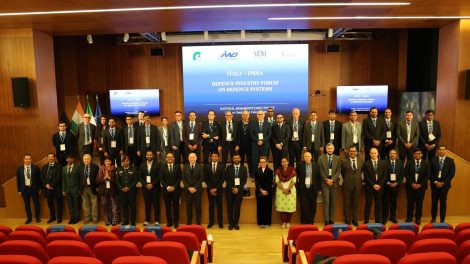Decoding the news. The U.S. Africa Command (AFRICOM) has announced that “Flintlock 2026,” its premier special operations exercise, will include, for the first time, a joint training hub in central Libya, near Sirte
- A symbolic and strategic location dividing the country’s eastern and western factions.
- The move marks a milestone: forces from both Tripoli and Benghazi will train together under U.S. coordination, signalling progress toward the long-sought unification of Libya’s fractured military institutions.
- The exercise follows the easing of the UN arms embargo in January 2025, which now allows limited security cooperation for reunification.
- “This exercise isn’t just about training; it’s about overcoming divisions and building capacity,” said Lt. Gen. John Brennan, AFRICOM’s deputy commander, during a recent visit to Tripoli and Sirte.
The big picture. Italy will benefit from the U.S. commitment to preventing instability on the Libyan continent.
- The U.S. commitment will bring benefits to organised crime, illegal immigration, and Libyan sociopolitical stability.
- Furthermore, Italy can contribute to the mission thanks to its historic expertise in military diplomacy in North Africa and its already structured presence in Africa and the Middle East.
Italy’s military diplomacy. Rome’s Special Operations Command may be directly involved in planning and executing the Libyan “spoke,” alongside others in Mauritania and Côte d’Ivoire, underscoring Italy’s growing leadership within European defence efforts in Africa.
- From Rome’s perspective, Flintlock 26 is more than a tactical event — it’s a political test of Libya’s fragile reunification process and a strategic opportunity to reaffirm Italy’s influence in North Africa amid renewed U.S. engagement.
- Italy has long positioned itself as a bridge between NATO and the Maghreb, leveraging its historical presence, energy ties, and “military diplomacy.” Through missions like MIASIT in Libya, MISIN in Niger, and the Amedeo Guillet base in Djibouti, Rome sustains one of the most extensive footprints among EU countries in Africa.
- On September 30, Lieutenant General Giovanni Maria Iannucci, Commander of the Italian Joint Operations Command (COVI), met with General Mohammed Al-Haddad, Chief of Staff of the Libyan Armed Forces, alongside Ambassador Gianluca Alberini, on the sidelines of the MIASIT mission handover ceremony in Tripoli.
Italy’s role. Under the Mattei Plan for Africa, the Meloni government sees Libya as a cornerstone of energy security and migration management, where stability and cooperation are essential. The possibility of coordinating with AFRICOM could provide Rome with a dual advantage
- Security leverage: Contributing to counterterrorism and regional stabilisation efforts that protect Italy’s southern flank.
- Political visibility: Aligning with Washington’s renewed focus on the Sahel while countering Moscow’s and Wagner’s lingering influence in eastern Libya.
Why it matters: Flintlock 26 could become a litmus test for Libya’s reunification and for Italy’s ability to shape outcomes in the wider Mediterranean arc, from the Sahel to the Suez.
- For Washington, the exercise reflects a shift from crisis management to partnership-building. It’s a chance for Rome to consolidate its Mattei Plan for Africa — an integrated strategy linking energy, security, and development.
- In the background: The U.S. move also serves to contain Russian and Wagner influence in eastern Libya, as Moscow seeks to deepen its footprint across the Sahel and southern Mediterranean.
What we’re watching. The coming months will test the depth of Libyan cooperation and whether forces from Tripoli and Benghazi can sustain joint participation in the Flintlock exercise without triggering political backlash at home.
- Much will depend on Libya’s rival power centres’ ability to treat the drills as a shared step toward institutional reunification rather than a zero-sum contest for legitimacy.
- The exercise could also generate regional ripple effects, fostering coordination between Flintlock and European missions such as Aspides and Atalanta, as Europe rethinks its military posture following the partial withdrawal of several member states from the Sahel.
- Finally, the energy dimension remains crucial. If the security environment improves, the Sirte training hub could become a symbol of Libya’s gradual stabilisation — reopening the door for U.S. and Italian investment in the country’s vital oil and gas infrastructure, long hampered by insecurity and political fragmentation.





